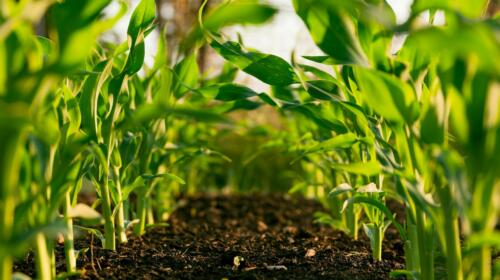Last year was confirmed as the hottest on record. The war with nature is firmly in the spotlight. Nations are starting to take serious action. This month, the EU announced plans to slash greenhouse gas pollution by 90% by 2040 to combat our attack on nature.
A key player in this race is farmers. They’re able to have a key impact on the climate narrative. 71% of the UK’s land is owned by farmers and land managers. They tend to the land and are uniquely positioned to make the link between weather and profit.
Farmers are increasingly working with nature to protect our planet. The agriculture industry is essential to our food security and provides half of the food we eat. Managing the balance between feeding the population, and protecting the environment is not an easy one.
How your brand can cut through the noisy media landscape
The media headlines are showing us that the damage we’re causing to the planet will soon have irreversible effects. The current media environment is a tricky place to navigate. It’s important that the progress we’re seeing in the low-carbon supply chain is given a voice amongst all the negative headlines. Not just in the UK media landscape, but across news outlets, print media and social media platforms.
To stand out in the media landscape, there are some simple steps brands can take:
- Create a compelling and consistent brand voice. Your brand voice is a very powerful asset. Having a unique voice in a media outlet helps with brand recognition and to build a brand identity that connects with your audience.
- Understand and engage your audience. Engaging with your target audience on a deeper level gives you more insight into the challenges they’re facing. You can then tailor your brand services and products to meet their needs.
- Inspire a solution. Make a significant influence. Brands immediately set themselves apart from their competitors by inspiring solutions and new ways of thinking.
It’s important to remember the role agriculture plays in climate change.
Methane produced by cattle, increased use of fertilisers and deforestation are all part of the wider agricultural processes contributing to global warming.
But, we can’t forgot the benefits of low-carbon and agriculture supply chains:
- They help to maintain the health of our planet.
- They increase profits for farmers and landowners.
- They focus on producing agricultural products whilst minimising the release of carbon emissions – without affecting the profitability of farmers.
Farmers will start to produce healthier and tastier products and increase profit margins by prioritising soil health and diversifying crops. They’ll also improve their own financial sustainability by cutting the costs on fertilisers and using renewable energy sources to help run operations.
Interested in how your business can cut through the media noise and stand out in a crowded space? Contact us today to find out how the right agency partner can craft a compelling story so you’re leading the conversation in your field.


